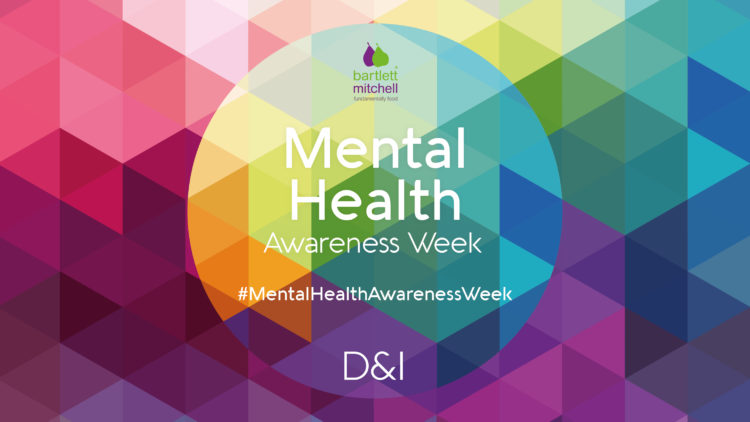
My name is Diana and I am a General Manager with more than 15 years experience in the hospitality industry, from hotels, restaurants, to corporate catering.
With people, at times, needing extra support I decided to undertake a mental health first aider course to enable me to feel confident to provide support when it’s needed.
Signs and Indicators of Mental Ill Health
When individuals are experiencing mental ill health, they will show a variety of signs and symptoms. The most important indicator that managers and employers can identify is a change in behaviour and/or attitude of an individual that they work with. This can often indicate a problem.
The most obvious signs include:
- Frequent lateness,
- Withdrawal,
- Irritability
- Angry or Aggressive
- Appearing anxious or distressed
- Sad or low
- Mood changes
- Loss of motivation.
Less obvious signs include:
- Unexplained tiredness
- Headaches
- Weight loss or gain
- Changes in appetite
- Complaining of joint or back pain
- Not being able to sleep
The Importance of Positive Relationships within the workplace
Positive relationships are important in preventing and supporting mental ill health in all aspects of life, including the workplace. Many full-time workers spend more time at work during the week than at home with family and friends. Being in a negative environment for this large amount of time can cause stress and make individuals feel isolated, which will reduce motivation and lead to low morale.
Main characteristics of positive relationships:
- Trust
- Patience
- Empathy
- Appreciation
- Flexibility
- Effective communication
- Openness and honesty
Tips On Active Listening
Active listening is an important skill, especially for handling sensitive conversations.
Active listening involves:
- Observing the individual’s body language to check that it supports what they are saying e.g. if they say everything is fine but appear very tense and anxious, you may need to probe further.
- Not interrupting.
- Listening without judging the individual or jumping to conclusions about what they are telling you.
- Listening properly rather than thinking about something else or planning what you will say next.
- Showing the individual that you are listening through making eye contact and positive body language e.g. facing them and leaning towards them slightly.
- Not forcing your opinions or solutions on the individual.
- Staying focused throughout the conversation.
- Not taking notes, as it looks as if you are not listening.
- Asking relevant questions to gain more information or to clarify your understanding of what the individual is saying.
- Summarising what has been said to confirm you have got it right and picked up the main points.
Supporting An Individual with Mental Ill Health
Early Intervention
Managers and colleagues in the workplace can play an important role in the early intervention to prevent mental health decline. They should be able to identify any early signs that individuals are stressed or that their mental health is declining.
Short Term Support
Where someone is experiencing stress or mental ill health, they should be supported. Employers have a duty of care which means that they should support individuals in the workplace.
In the short term, talking to individuals and finding out about any issues will help in providing the support they need.
Support might include helping them to prioritise workloads, allowing extra rest breaks, reducing their workload temporarily or simply talking through issues with them or referring them to someone in the environment who can help.
Long Term Support
In the longer term, where mental health declines, or there is a more serious mental health issue, individuals may need time off from work or learning. This may be because they are not well enough to do the work they need to do, or because they are taking medication which may mean they are unable to carry on with their work, e.g. it makes them sleepy and unable to operate a piece of equipment. It is important that contact is maintained with the individual during their absence from the workplace.
Return to Work
When an individual is returning to work, following absence due to mental ill health, they should feel supported. Someone from the organisation (e.g. a manager from the workplace) should meet with them before their return to discuss the organisation’s expectations and any concerns they may have.
They should be updated on anything they have missed while they have been away such as changes in structure or personnel and encouraged to talk about their absence and ask any questions they have.
Support Your Own Mental Health
Supporting individuals with mental ill health, who are distressed, experiencing stress at work or in the learning environment can be stressful for the person supporting them. It is therefore vital that you take care of your own Mental Health, here are some ideas to help you you support yourself.
- Keep a reflective diary – often writing things down helps you to think through and resolve any concerns.
- Look for advice on self-help – there are a variety of online tools and sources of advice for improving your own mental health and books recommended by professionals which may be of use.
- Talk to someone – while you shouldn’t discuss the details of someone else’s problems, you can talk about your own feelings. This might be to a family member, manager or colleague.
Support You Can Trust
From May we will have our own, qualified, mental health first aiders who will be able to give extra support to managers and colleagues.
If you’re struggling with your mental health don’t forget there is lots of useful advise on the NHS
